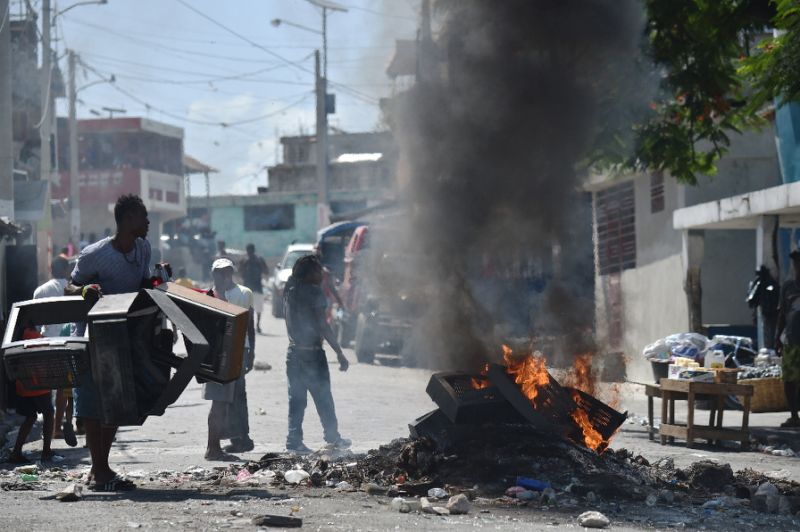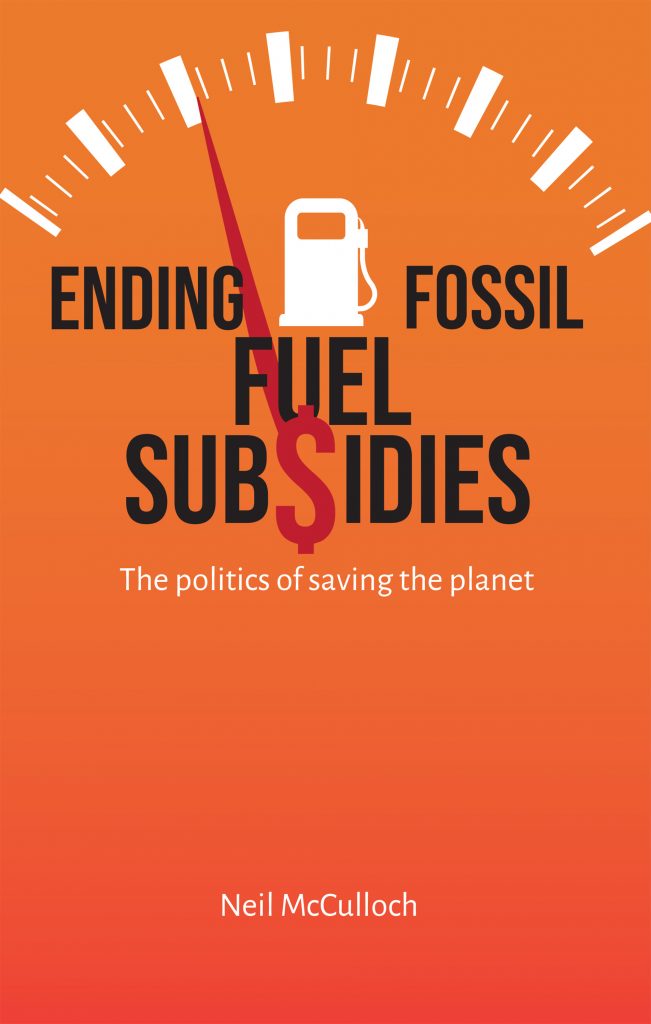

Neil McCulloch introduces his new book
Hands up if you would like petrol prices to go up? I’m guessing not too many hands. The cripplingly high costs of energy (whether petrol, diesel, gas or coal as well as electricity) have posed a huge challenge for households and firms all around the world. Massive increases in these costs, driven by the weaponization of energy by Putin after the Russian invasion of Ukraine, have plunged some households into poverty – forcing them to choose between heating and eating. Businesses have laid off workers and scaled back activities because of the crippling price rises.
That is why governments across the world have stepped in to put a ceiling on the prices of fuel and electricity. The ceiling means that there is a gap between the price at which energy is sold and the cost of obtaining it – in other words, a subsidy, paid by the government to protect consumers from unaffordable energy prices. Given the crisis, governments have few other options in the short-term to protect citizens. But the costs are enormous. The original energy price guarantee announced in the UK was forecast to cost more than GBP 100 billion (now much reduced). The EU have put in place a similarly generous subsidy for their consumers.
The huge cost of today’s energy subsidies has focused attention on the challenge of making energy affordable. But this is not a new problem. Governments around the world have been trying to keep down the price of energy for consumers for decades by subsidizing fossil fuels and electricity. In 2019, the EU spent €50 billion subsidizing fossil fuels. But it was not alone. Dozens of countries – from Iran to Indonesia, Egypt to Ecuador, Nigeria to the Netherlands – subsidize fossil fuels. Some spend a large percentage of their country’s budgets doing so. Globally, in 2019 – long before the war in Ukraine – governments around the world spent $468 billion subsidizing fossil fuels, about twice the amount spent on all international aid. In 2021, it was $700 billion and 2022 will have been much, much more.

Subsidizing fossil fuels is problematic for many reasons. Most obviously, in the midst of a climate crisis, making fossil fuels cheaper than they would otherwise be encourages greater consumption – the opposite of what is needed globally. As important, subsidizing fossil fuels kills people. The WHO estimates that outdoor air pollution is responsible for around 3.8 million premature deaths every year. Most of this pollution comes from particulates and other toxic substances emitted from burning fossil fuels, particularly coal. Subsidizing fossil fuels also drains country budgets. In 2021, Indonesia spent 20% of its entire budget on subsidizing energy, more than it spent on education; in Nigeria, the cost of subsidizing petrol is three times the budget for health.
Given such problems, there has been international movement to end fossil fuel subsidies. In 2009, the G20 nations agreed to take measures to “eliminate inefficient fossil fuel subsidies”; the G7 made a similar commitment. The World Trade Organization has also called for an end to such subsidies, as did both the COP26 and COP27 climate conferences. Yet, 14 years later, fossil fuel subsidies are larger than they were in 2009. The current approach to fossil fuel subsidy reform (FFSR) is clearly not working.
The reason is that FFSR is regarded as a technical problem. The ‘best practice’ advice is always the same:
- Analyze the nature of subsidies i.e. which fuels are subsidized and by how much and who uses them.
- Propose price increases tied to cash transfers. i.e. bump up the price of the subsidized fuel to something closer to cost, but compensate the poor with some cash
- Change the way that prices are set, i.e. either shift to an automatic formula that keeps prices cost-reflective, or liberalise so that prices are market-driven.
These are not bad things to do – and they can work. But all too often they fail. Analysis is done – but never acted on. Reforms are introduced, but quickly reversed after a backlash. A pricing formula is announced, only for the government to renege on its use soon thereafter. Liberalization is promised, but never delivered. History is littered with examples of failed or partial FFSR. But why do governments behave this way? The answer lies in the politics of FFSR.
First, subsidy reform generally entails price increases that are deeply unpopular. Citizens may have good reasons to doubt the promises of their governments that price rises will enable them to provide better services. Many see it as an abrogation of the social contract. Price rises are also a gift to the opposition, providing a focal point for protest. No wonder governments avoid them if they can.
Second, some people make a lot of money from subsidies. For example, in Nigeria millions of litres of petrol flow across the borders to neighbouring countries, where the prices are much higher. Those organizing the smuggling have no desire to see fossil fuel subsidy reform – and enough money to fund politicians to oppose it.

Yet most efforts at FFSR have completely ignored the politics! A brilliant new (Open Access) book by someone with no qualms about self-promotion argues for a much more politically savvy approach to FFSR, drawing on recent lessons about Thinking and Working Politically. It argues for a rather different, three step approach to reform:
- Analyse the politics
There are endless reports analyzing the technical aspects of fossil fuel subsidies in different countries, but far less rigorous analysis of the politics of reform. Doing so could help reformers and external actors support change in a more politically savvy way.
- Compensate … but make sure you include key non-poor groups
When reform is planned, donors focus overwhelmingly on protecting the poor. That is important – but it is not only the poor that vote. Politically feasible reforms have to provide benefits to groups that may not be the poorest, but whose interests must be taken into account.
- Have a vision
Successful reformers construct politically attractive ‘offers’ in return for FFSR. For example, President Joko Widodo in Indonesia used the savings from an earlier subsidy reform to deliver free health and education to millions. FFSR has to be part of something bigger that has real political salience in each context.
To have any chance of averting catastrophic climate change, we should all be putting our hands up for higher fossil fuel prices for consumers (but not producers). Yet prices are kept down by fossil fuel subsidies that damage the environment and divert money away from development. Taking a politically- informed approach to FFSR could enable external actors to more effectively support local champions to end fossil fuel subsidies for the long-term benefit of all.